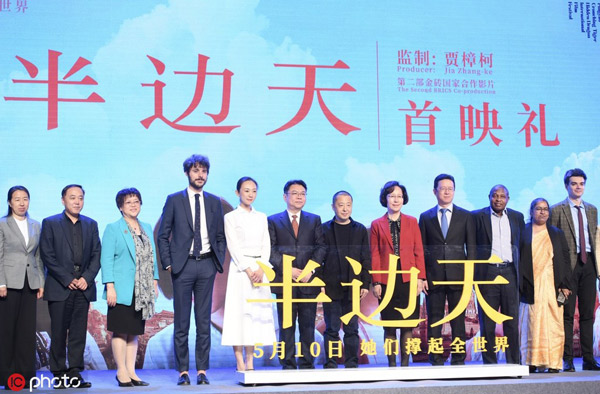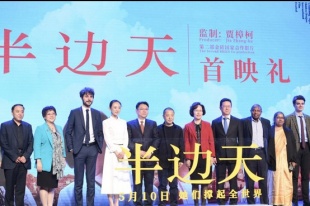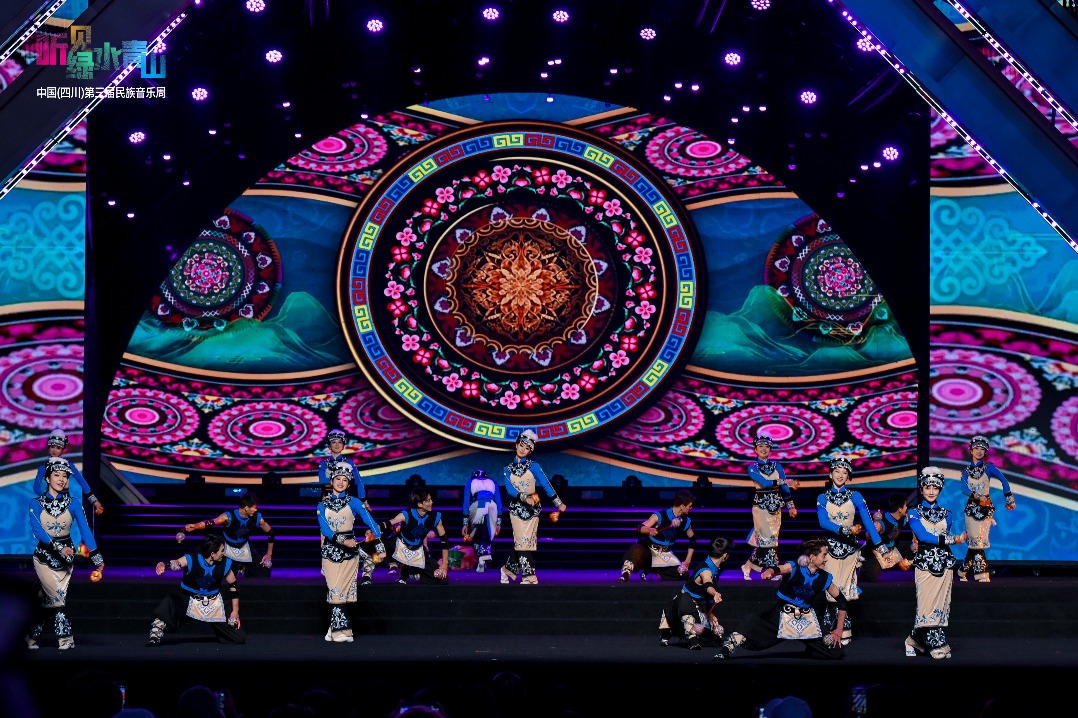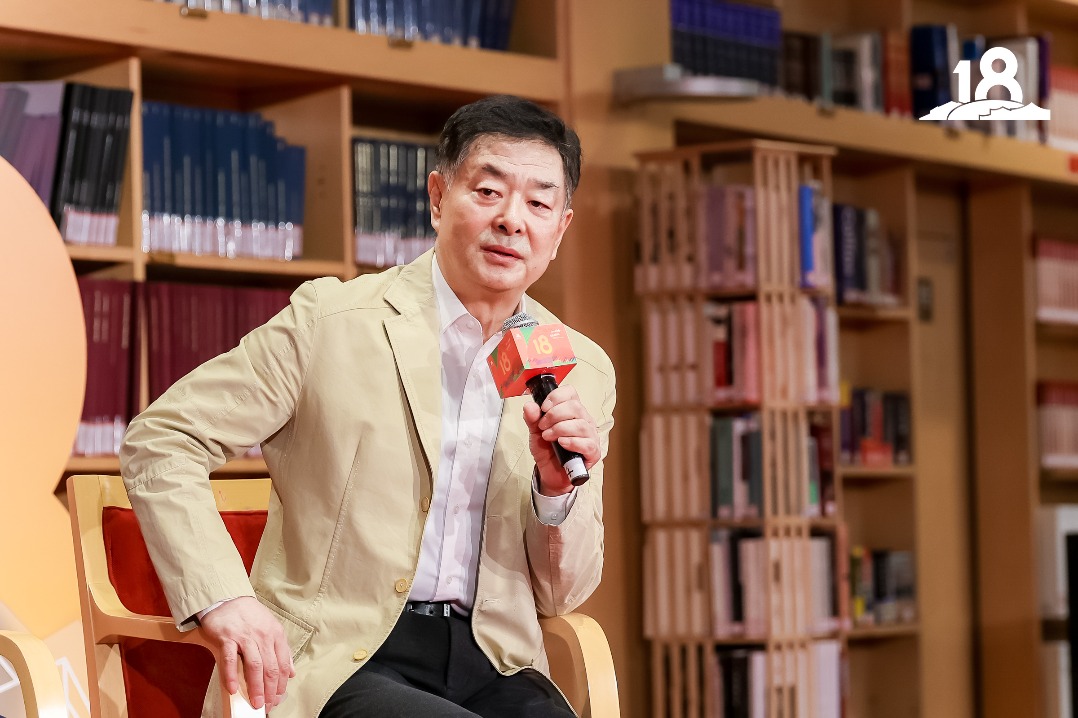Women's worlds


A new film by five female directors from BRICS countries, Half the Sky, is released in China just before Mother's Day, Xu Haoyu reports.
New China's founding father, Mao Zedong, said in the 1950s: "Women hold up half the sky." These words have inspired Chinese women to play a greater role in society in the following decades.
In this spirit, the film, Half the Sky, was released in the theaters on Friday, just days before Mother's Day. Jointly created by five female directors from the BRICS countries-Brazil, Russia, India, China and South Africa-the film spotlights womanhood.
"We hope that through these five directors' work, women will be heard and better understood. We focus on the realization of their values," says Jia Zhangke, Chinese director and producer of the film.
This is his second time as a producer of a BRICS film.
"BRICS countries have experienced the clash between traditional culture and modern transformation in different ways. It's interesting to present such conflict in films."
Jia recalls his first experience working in cross-cultural cooperation with people from BRICS countries in 2017. He says he exchanged more than 100 emails with filmmakers on a single day to discuss the theme and production format.
Initially, they had thought about shooting the film, Where Has the Time Gone, portraying similar scenarios in the five countries, such as train stations, or people from groups like students and farmers. And many ideas were passed over before the film, which is an anthology of five independent short stories examining the title's theme, was made.
But consensus was reached more quickly when planning the new film.
Jia says women seem to be achieving a lot in the film industry, especially in China, citing by the many awards female filmmakers won at the 2017 Pingyao International Film Festival.
"We are witnessing the rising power of women and, at the same time, noticing their struggles."
Jia says more needs to be done about equal rights, though, and that different countries face their own respective challenges.
He says Hollywood actresses fought for equal pay for equal work last year, which is a problem China solved in the '50s.
"But no policy or labor law can completely wipe out male preference in personal or traditional consciousness," Jia says. "We wish to change the gender inequality hiding in people's subconsciousness, even if just a bit, through films."
In the new film's five parts-as was in the older film-the spaces, skin colors and languages change, but the spirit stays the same, he adds.
Half the Sky lasts 99 minutes and tells stories of five women from different cultural backgrounds.
The Measure of a Woman, made by Sara Blecher from South Africa, tells the story of an athlete, who's questioned about her gender after winning first place in a canoe race. Back, the Brazilian section produced by Daniela Thomas, presents the story of a daughter on the way back home to see her dying mother. Directed by Indian Ashwiny Iyer Tiwari, Taken for Granted aims to remind people of how difficult it is for a wife to take care of her whole family. Catfishing, produced by Russian director Elizaveta Stishova, focuses on online dating and summarizes a dramatic conflict.
The Chinese section, Dumplings, uses the traditional food to convey emotions and discusses issues, including the communication gap between two generations. It centers on a female white-collar worker, her widowed mother and the latter's late-life lover. It was directed by Liu Yulin, a young female director born in Henan province. She made her first short film, Door God, in 2014 and adapted the novel, Someone to Talk To, for a film two years later.
"A good story comes from real life," says Liu, who draws inspiration from things happening around her.
For Dumplings, Liu was inspired by an interview recorded by An Dun, a writer who also works as a reporter for Beijing Youth Daily, which is about a daughter who regrets preventing her mother from remarrying.
"The dumpling is a traditional food that signifies family reunions," Liu says of the title. "It's also much like the subtle emotional expressions of many Chinese people. Many dumplings look the same from the outside-but what's hiding inside might surprise you."
Talking about being a female director, she says women are likely to be more sensitive in understanding the sorrows and joys of others.
The film was screened at the China National Museum of Women and Children in Beijing on May 7.
Huang Yiyang, deputy director-general of the Department of International Economic Affairs at the Ministry of Foreign Affairs, expressed his appreciation of the cooperation among the five countries at the film's screening.
"The BRICS countries are at similar stages of development, and a vast number of emerging markets and developing countries have high expectations of us. The relationship among countries depends on the connections among people and cultural exchanges," Huang says.
"Film builds a bridge to enhance mutual understanding among people of all countries."
Wu Haiying, vice-president of the All-China Women's Federation, says: "In the history of New China, women have played an irreplaceable role in social and family life, and they are now writing a glorious chapter on an increasingly broader stage.
"The film provides a good interpretation of women's dreams, struggles and predicaments."
Contact the writer at xuhaoyu@chinadaily.com.cn





































